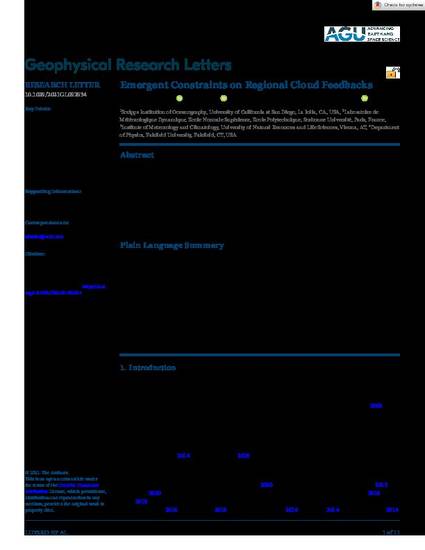
Low-cloud based emergent constraints have the potential to substantially reduce uncertainty in Earth’s equilibrium climate sensitivity, but recent work has shown that previously developed constraints fail in the latest generation of climate models, suggesting that new approaches are needed. Here, we investigate the potential for emergent constraints to reduce uncertainty in regional cloud feedbacks, rather than the global-mean cloud feedback. Strong relationships are found between the monthly and interannual variability of tropical clouds, and the tropical net cloud feedback. These relationships are combined with observations to substantially narrow the uncertainty in the tropical cloud feedback and demonstrate that the tropical cloud feedback is likely >0Wm−2K−1. Promising relationships are also found in the 90°–60°S and 30°–60°N regions, though these relationships are not robust across model generations and we have not identified the associated physical mechanisms.
Available at: http://works.bepress.com/robert-nazarian/4/
© 2021 The Authors. All rights reserved. Publisher PDF has been archived here with permission from the copyright holder.
This is an open access article under the terms of the Creative Commons Attribution License, which permits use, distribution and reproduction in any medium, provided the original work is properly cited.